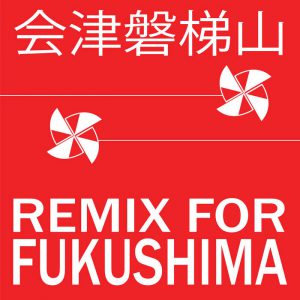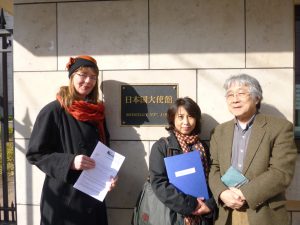The war in Ukraine reminded us in 2022 of the danger of using nuclear weapons, and the real threat of our nuclear power plants if they ever become military targets, turning them into mega-atomic bombs.
However, the Kishida government has committed itself, from August 2022, to nuclear revival with the construction of new reactors, as well as the restart of existing reactors and the extension of their operating periods. This has been included in the “Green Transformation” policy decided by the Council of Ministers on February 10th, 2023. Faced with such a forced choice, after a very short online consultation, and even before the end of a “public debate” limited to only ten cities, we feel an even stronger anger towards the government than before.
The crippled plant is still facing various problems and is far from being safely dismantled. In seven municipalities of Fukushima, there are still so-called “difficult to return to” zones –areas where people are not allowed to stay, and several tens of thousands of refugees cannot return to their homes. Barely twelve years after the accident, the government has abandoned the principles that emerged from the reflections and lessons of the disaster: reducing dependence on nuclear power generation, limiting the operation of a reactor to forty years, and separating the nuclear regulator from the entity that promotes it.
Yes, it is reasonable to publicly express our concern after the stupidity of such a choice which leads straight to the risk of a new accident. That is why we must, once again, oppose this decision with all our might.
The status of the trials is also worrying. The Supreme Court’s verdict for four civil cases in June 2022 absolved the Japanese state of legal responsibility for the accident, overturning the three appeal rulings that had recognized such responsibility.
In the criminal trial against the former TEPCO executives, the appeal judgement of January 2023 confirmed their acquittal, on the grounds of “insufficient evidence”. However, the court had refused to hear important witnesses and even to visit the accident site for verification.
As for the lawsuit filed by the Fukushima authorities to dislodge the refugees from the housing they had been granted, the court condemned the latter without taking into account the international right to housing.
In all cases, the examination of evidence and witnesses remains insufficient, making these judgements unacceptable to the victims. This is why the plaintiffs in the criminal trial have decided to appeal to the Supreme Court. For our part, we will continue to argue and request additional hearings. But these unfair judgements may be related to the move towards a nuclear revival.
As for Fukushima, there is another serious issue, since the discharge of radioactive water from the plant into the sea will begin in several months. And this is expected to last for several decades. In December 2022, we organized an international forum with citizens from the Pacific Ocean who condemned this discharge of contaminated water into the marine environment as an unacceptable violation of the human rights of the people living on the Pacific Ocean and a serious threat to the life of aquatic organisms.
This has also led to protests from countries such as South Korea and China. The crippled Fukushima Daiichi nuclear plant has already released a huge amount of radioactive substances. But on top of that, the government and TEPCO will knowingly dump more contaminated water into the world’s oceans from Fukushima.
This hurts us, which is why we want this operation to be stopped at all costs. On April 13th, one year to the day after the decision to release the radioactive water into the sea, the people of Fukushima are calling for a worldwide protest action. Let us hope that this international solidarity action will be a success.
In spite of increasingly troubled times, let us continue to work with all our strength and perseverance for a bright future for coming generations.
March 2023 in Fukushima
Ruiko Muto
Chair of the Complainants for the Criminal Prosecution of the Fukushima Nuclear Disaster
http://kokuso-fukusimagenpatu.blogspot.com/p/blog-page_5112.html
(Translated from Japanese by Nos Voisins Lointains 3.11)
For the translation in other languages, please visit:






